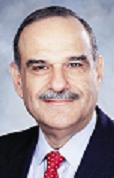Diaspora as Blessing?
More from the New York Times:
Large-scale concentrations of deep poverty — as was the case in New Orleans before the storm — are inherently harmful to cities. The smaller New Orleans is almost certain to wind up with a far higher percentage of its population working than before Hurricane Katrina.
“Where there are high concentrations of poverty, people can’t see a way out,” said William Oakland, a retired economist from Tulane University who has studied the city’s economy for decades. “Maybe the diaspora is a blessing.”
Others, however, worry that permanently losing so many people threatens the city’s culture — its unique way of talking, parading and eating.
“Culture is people,” said Richard Campanella, a Tulane geographer who has written extensively about the city’s neighborhoods. “If half the local people are dispersed and no longer living cohesively in those social networks, then half of local culture is gone.”
The new doubts also take into account the current barriers to repopulation, including the well-documented failure of the state’s Road Home aid program for homeowners, the loss of tens of thousands of jobs since the storm, the crime problem and delays in rebuilding moderately priced housing. Official efforts — local, state and federal — to rebuild the network of hospitals, schools and public housing projects that once served the city’s huge poor population have been faltering. But they also look at what New Orleans was before the storm.
The low population figure, 191,000, which was reported by the Louisiana Recovery Authority in November last year in the most credible survey to date, was about half the 444,000 count in a Census estimate before Hurricane Katrina. The number was surprising, dashing expectations of a “big return,” as one economist put it, and was hotly disputed by local officials. Still, upticks, if there are any, are imperceptible: the percentage of prehurricane gas and electric users who were getting service, for instance, remained the same between April and November 2006, the Brookings Institution reported last month.
“Our expectations were just wrong,” said James A. Richardson, an economist who directs the Public Administration Institute at Louisiana State University. “I don’t believe it will ever be 450,000 again. I think New Orleans did not need 450,000 people to support the economy you had at that time.”
Large-scale concentrations of deep poverty — as was the case in New Orleans before the storm — are inherently harmful to cities. The smaller New Orleans is almost certain to wind up with a far higher percentage of its population working than before Hurricane Katrina.
“Where there are high concentrations of poverty, people can’t see a way out,” said William Oakland, a retired economist from Tulane University who has studied the city’s economy for decades. “Maybe the diaspora is a blessing.”
Others, however, worry that permanently losing so many people threatens the city’s culture — its unique way of talking, parading and eating.
“Culture is people,” said Richard Campanella, a Tulane geographer who has written extensively about the city’s neighborhoods. “If half the local people are dispersed and no longer living cohesively in those social networks, then half of local culture is gone.”
The new doubts also take into account the current barriers to repopulation, including the well-documented failure of the state’s Road Home aid program for homeowners, the loss of tens of thousands of jobs since the storm, the crime problem and delays in rebuilding moderately priced housing. Official efforts — local, state and federal — to rebuild the network of hospitals, schools and public housing projects that once served the city’s huge poor population have been faltering. But they also look at what New Orleans was before the storm.
The low population figure, 191,000, which was reported by the Louisiana Recovery Authority in November last year in the most credible survey to date, was about half the 444,000 count in a Census estimate before Hurricane Katrina. The number was surprising, dashing expectations of a “big return,” as one economist put it, and was hotly disputed by local officials. Still, upticks, if there are any, are imperceptible: the percentage of prehurricane gas and electric users who were getting service, for instance, remained the same between April and November 2006, the Brookings Institution reported last month.
“Our expectations were just wrong,” said James A. Richardson, an economist who directs the Public Administration Institute at Louisiana State University. “I don’t believe it will ever be 450,000 again. I think New Orleans did not need 450,000 people to support the economy you had at that time.”





1 Comments:
Is the economy paramount in the struggle to help New Orleans? I thought it was to help the people come HOME. I am conservative and I have had my own rants on people that let the government support them, but never, NEVER have I felt that people should be barred from returning to their community. There is something very fascist in that thinking. New Orleans IS her people. Any New Orleanian knows that the city is part of your soul and you will never be whole away from her.
Post a Comment
<< Home